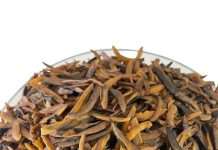
Gongronema latifolium, commonly known as Utazi in Nigeria, is a tropical plant cherished for its rich nutritional content and diverse health benefits. Gangronema Latifolium (utazi) is a climbing shrub with broad, heart-shaped leaves that has a characteristic sharp, bitter and slightly sweet taste, especially when eaten fresh.
It belongs to the family of plants known as Asclepiadaceae and it is widespread in tropical rainforests of West African countries, such as Nigeria, Côte d’Ivoire, Sierra Leone, Ghana Senegal, etc.
In southern Nigeria, where it is commonly grown, the Igbos call it utazi, the Yorubas know it as arokeke and the Efiks and Ibibio call it utasi.
Unique for its versatility, utazi is used in the preparation of many cuisines familiar to the southeastern part of Nigeria and the Efik tribe. Examples of such dishes include African pepper soup, ofe nsala (white soup), nri Ji na Mmanu etc.
It is also adopted in herbal medicine therapy with all of its parts playing 0 roles and aiding different needs. The Parts used include-, seeds, leaves, roots and bark.
Utazi is abundant in nutrients and bioactive compounds, making it highly beneficial for health. Fresh leaves contain protein, magnesium, and cinnamic acid, among other compounds. These include anetol, boron compounds, eugenol, stigmasterol, tannin, zinc, and tryptophan. The presence of these compounds contributes to their medicinal properties.
Below are the amazing health benefits of Utazi;
Aids management of diabetes
Utazi has demonstrated potential in diabetes management by regulating blood sugar levels. This benefit is linked to its cinnamic acid content, which improves circulation and stabilises blood glucose. A study by Ugochukwu and Babady published in 2002 found that oral administration of aqueous and ethanolic extracts of Gongronema latifolium significantly reduced blood glucose levels in diabetic rats. The extracts enhanced antioxidant activity, increasing superoxide dismutase and glutathione levels while reducing lipid peroxidation, indicating their efficacy in controlling diabetes through antioxidant mechanisms. Simply put, This finding suggests that the plant’s antioxidant properties play a significant role in its ability to manage diabetes.
May serve as anti-hypertensive therapy
The potassium content in Utazi supports heart health by stabilising blood pressure. Research indicates that the plant’s extracts can prevent hypertension due to its rich antioxidant profile. A study in 2019 published in the Journal of Ethnopharmacology by Rosemary Alexandra found that Gongronema latifolium extract significantly reduced systolic blood pressure in hypertensive rats, demonstrating its potential as a natural remedy for hypertension.
May help reduce inflammation
The flavonoids and other polyphenolic compounds in Utazi neutralize free radicals, reducing oxidative stress and inflammation. A study byMorebise et al.(2002)highlighted the potent antioxidant activity of Gongronema latifolium, which could help in the prevention of chronic diseases such as cancer and cardiovascular disorders.
May help improve gastrointestinal health
Utazi is used traditionally to manage digestive issues like gastritis and stomach ulcers. Research by Nwiyi and colleagues at the Covenant University found that the aqueous extract of Gongronema latifolium and Pisidium guajava leaves had antispasmodic effects, which helped alleviate symptoms of gastrointestinal discomfort.
May serve as malaria treatment
The plant’s extract has shown potent antimalarial activity, inhibiting the growth of Plasmodium falciparum, the parasite responsible for malaria. A study conducted by Onyenekwe et al. (2006) confirmed the effectiveness of Gongronema latifolium in managing malaria symptoms, supporting its traditional use in Nigeria as a natural remedy.
Precautions
Despite its numerous health benefits, Utazi should be consumed with caution, especially by pregnant women, due to potential uterine stimulant effects that could lead to miscarriage. Consultation with a healthcare provider is recommended before incorporating it into a daily diet, particularly for pregnant women or those with pre-existing health conditions.











